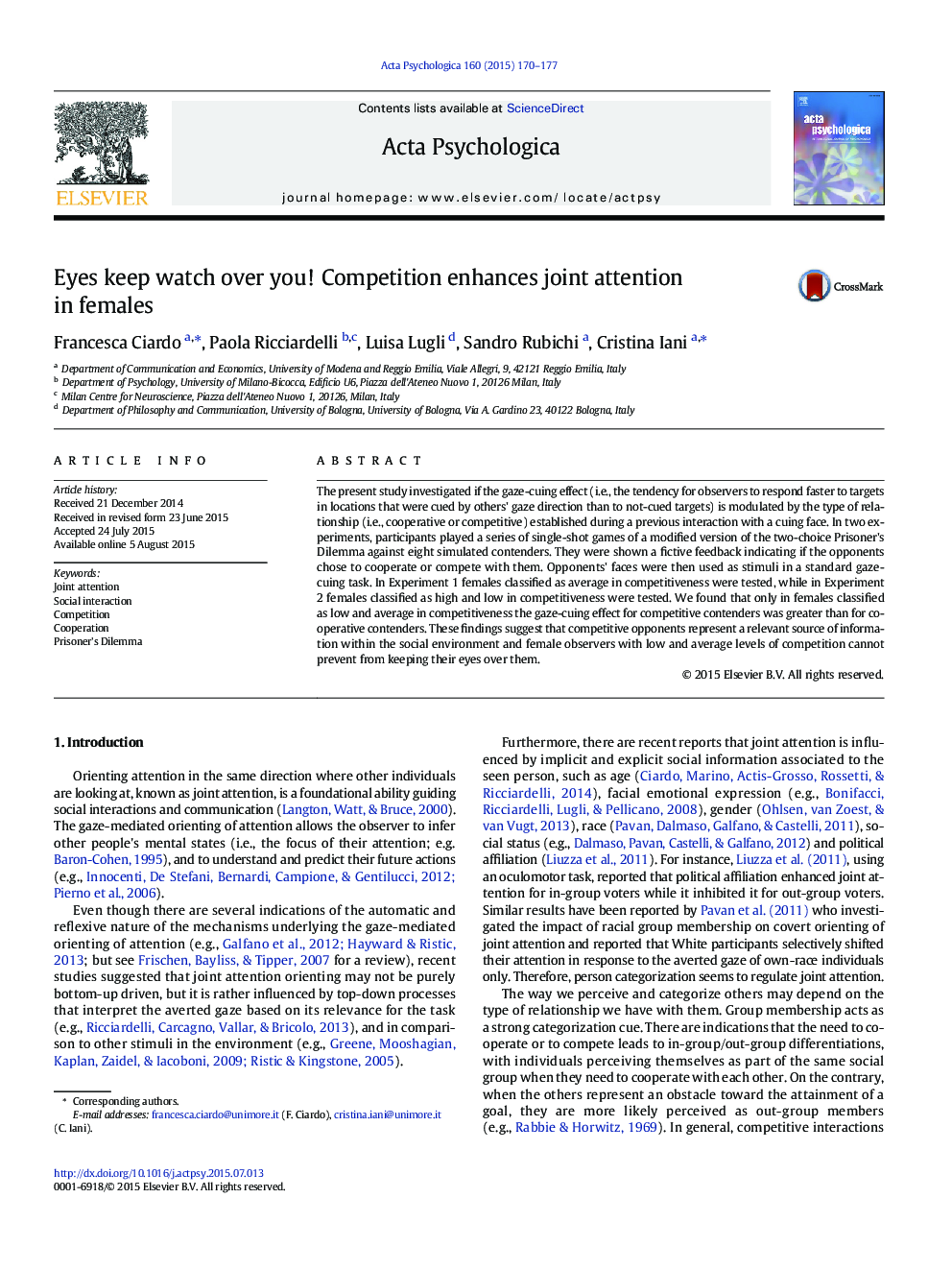| Article ID | Journal | Published Year | Pages | File Type |
|---|---|---|---|---|
| 919692 | Acta Psychologica | 2015 | 8 Pages |
•Outcomes of prior interactions with an individual modulate the gaze-cuing effect.•Competition enhances the gaze-cuing effect in low and average competitive females.•Attention is biased towards those individuals that are relevant for goal attainment.
The present study investigated if the gaze-cuing effect (i.e., the tendency for observers to respond faster to targets in locations that were cued by others' gaze direction than to not-cued targets) is modulated by the type of relationship (i.e., cooperative or competitive) established during a previous interaction with a cuing face. In two experiments, participants played a series of single-shot games of a modified version of the two-choice Prisoner's Dilemma against eight simulated contenders. They were shown a fictive feedback indicating if the opponents chose to cooperate or compete with them. Opponents' faces were then used as stimuli in a standard gaze-cuing task. In Experiment 1 females classified as average in competitiveness were tested, while in Experiment 2 females classified as high and low in competitiveness were tested. We found that only in females classified as low and average in competitiveness the gaze-cuing effect for competitive contenders was greater than for cooperative contenders. These findings suggest that competitive opponents represent a relevant source of information within the social environment and female observers with low and average levels of competition cannot prevent from keeping their eyes over them.
